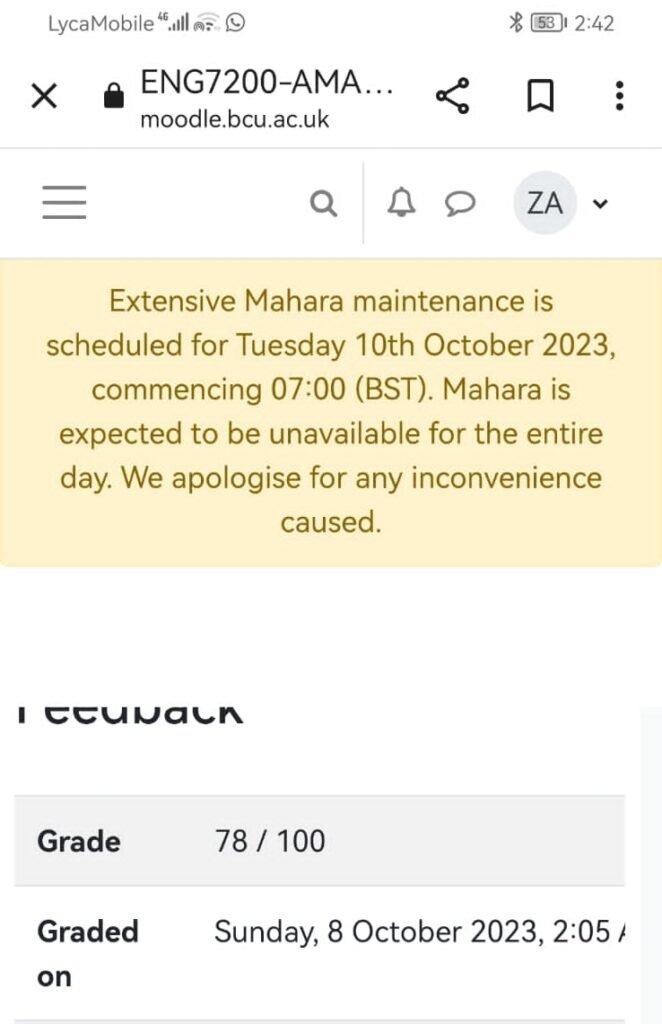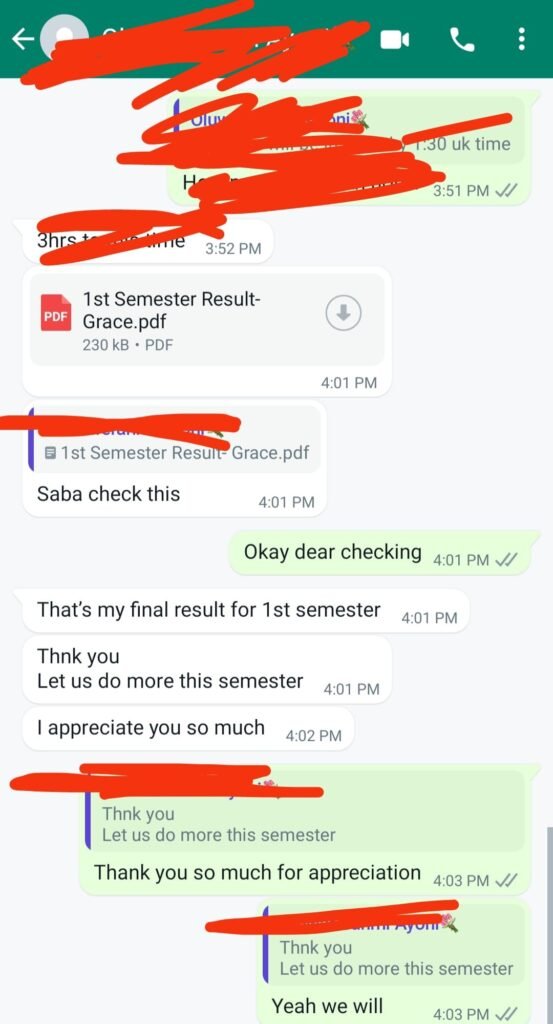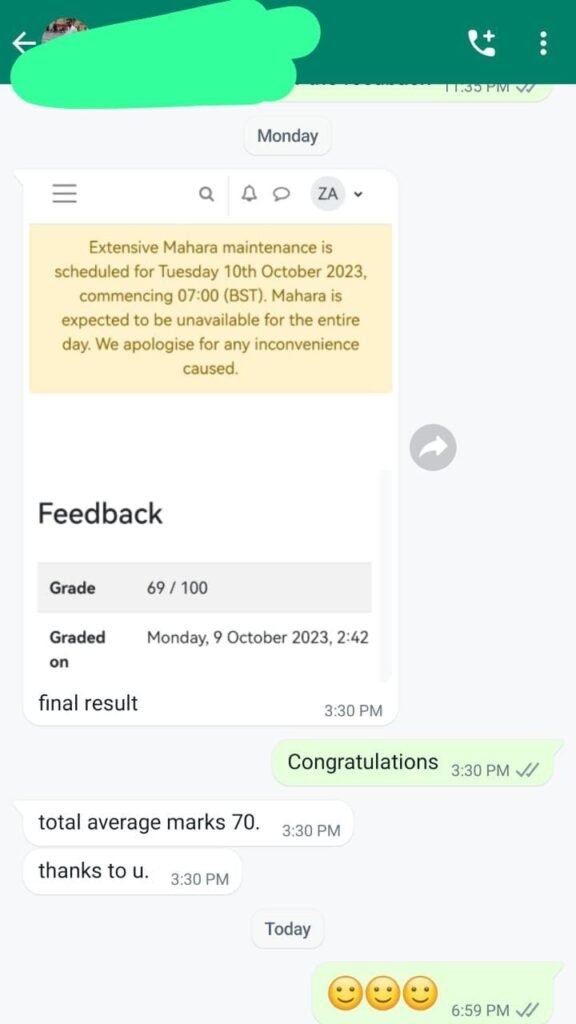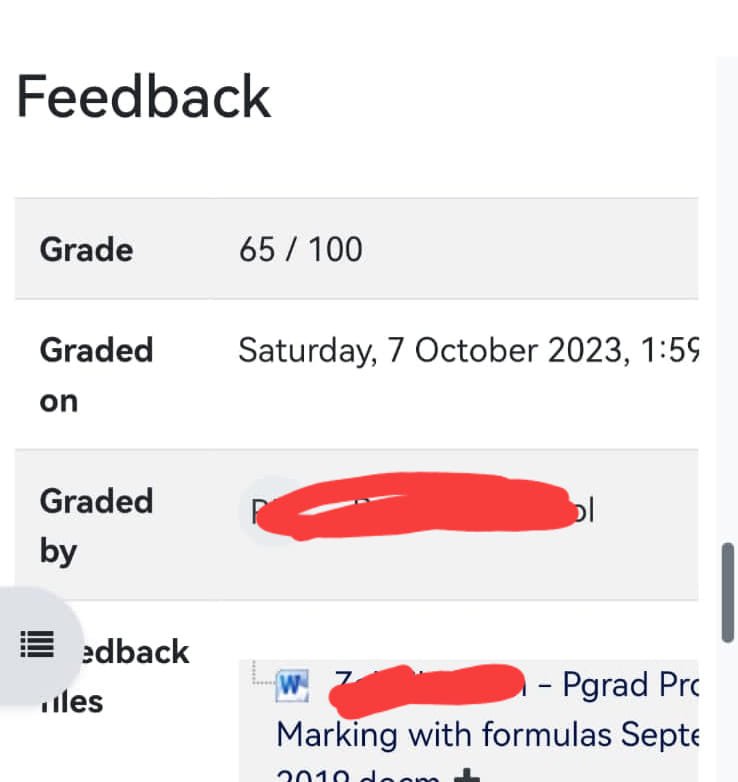
Research Proposal Writing Service – UK PHD Proposal Help
- Assistance at Any Stage of Your Dissertation
- 375 PhD Experts in Our Team
- Guaranteed Privacy
- 24/7 Live Support
Reduce your stress and get our services!
Smart Writer Hub is your go-to solution for Research Proposal Writing
What is a Research Proposal?
A research proposal serves as a detailed plan outlining the framework of a proposed research project. It provides a blueprint for conducting the study and helps demonstrate the researcher’s understanding of the topic, objectives, and methodology. The structure of a research proposal is typically composed of several sections, each serving a distinct purpose. The proposal generally begins with a Title Page, which includes a clear and concise title that reflects the main focus of the study. It also includes the researcher’s name, institutional affiliation, and the date of submission. Following this is an Abstract, which is an optional section summarizing the key aspects of the research in 150-300 words, including the research problem, objectives, methodology, and expected outcomes.
Key Components of a Research Proposal
The following are the key components that make up a comprehensive research proposal:
- Introduction: Provides background information, defines the research problem, outlines the study’s purpose, and presents research questions or hypotheses along with specific objectives.
- Literature Review: Summarizes existing research, highlights key findings, identifies gaps, and may include the theoretical framework supporting the study.
- Research Design and Methodology: Details the research approach (qualitative, quantitative, or mixed-methods), data collection methods, sampling techniques, data analysis methods, and study limitations.
- Ethical Considerations: Ensures adherence to ethical standards, including informed consent, confidentiality, and privacy protection for participants.
- Significance of the Study: Highlights the potential impact of the research on academic knowledge, practical applications, and societal benefits.
- Work Plan/Timeline: Outlines the schedule for completing the research, with estimated times for literature review, data collection, analysis, and report writing.
- Budget: Details the financial resources needed, including costs for equipment, travel, participant incentives, and software.
- References/Bibliography: Lists all sources cited in the proposal, following a consistent citation style.
- Appendices: Additional supporting materials such as questionnaires, consent forms, or technical data are included.
How many types of Research Proposal Writing are there?
Various types of Research Proposal Writing, including exploratory, descriptive, explanatory, thesis, and internal proposals, along with detailed examples to illustrate their unique purposes and contexts.
1. Exploratory Research Proposal
An exploratory research proposal is designed to explore a relatively unknown topic, issue, or problem. The primary goal of this type of research is to gain insights, gather initial data, and identify patterns or concepts that can help shape future research. It is often used when there are few or no prior studies on a particular topic, and the researcher wants to better understand the research problem without having a clear hypothesis.
Example: Imagine a researcher is interested in understanding the impact of remote work on employee creativity. Since this is a relatively new area due to the rise of remote work during and after the COVID-19 pandemic, there might not be much existing research. The researcher proposes an exploratory study using open-ended interviews with employees from various industries to explore how working from home has affected their creative thinking and problem-solving abilities. The objective is not to confirm a hypothesis but to gather insights that could inform future studies or lead to the development of new theories.
2. Descriptive Research Proposal
A descriptive research proposal aims to systematically describe a phenomenon, situation, or population. The main goal is to provide an accurate representation of certain characteristics or trends without exploring cause-and-effect relationships. This type of research focuses on answering the “what” questions and relies on observations, surveys, and quantitative methods to collect data.
Example: A public health researcher wants to study the prevalence of diabetes among adults in a specific city. The researcher submits a descriptive research proposal to conduct a survey of 2,000 residents, collecting data on their age, diet, exercise habits, and medical history. The goal is to document the current state of diabetes in that population and identify any demographic patterns. The results can then be used by healthcare policymakers to develop targeted prevention programs, but the study itself will not seek to explain the underlying reasons for diabetes prevalence.
3. Explanatory Research Proposal
An explanatory research proposal seeks to explain the causes and effects of a particular phenomenon. It goes beyond simply describing a situation and aims to understand the relationships between variables. This type of research is often conducted after exploratory and descriptive studies have identified potential factors that could influence the research topic. The focus is on answering “why” or “how” questions and often involves hypothesis testing using statistical analysis.
Example: Suppose an economist is interested in understanding why certain cities experience rapid increases in housing prices. The researcher submits an explanatory research proposal to study the factors contributing to housing price surges in three major cities. The study would involve collecting quantitative data on factors like income levels, zoning laws, population growth, and interest rates. By using regression analysis, the researcher aims to identify which factors have the most significant impact on rising housing prices and explain the causal relationships.
4. Thesis/Dissertation Research Proposal
A thesis or dissertation proposal is typically submitted by graduate or doctoral students as part of their academic requirements. The proposal outlines the intended research for their thesis or dissertation and must be approved by a committee before the student can proceed. This type of proposal includes detailed sections such as a literature review, research questions or hypotheses, methodology, and proposed timeline. The focus is usually on contributing new knowledge to a particular academic field.
Example: A PhD student in psychology is interested in examining the long-term effects of social media use on adolescent mental health. The student submits a thesis proposal that includes a review of existing literature on social media and mental health, outlines specific research questions, and proposes a mixed-methods approach involving both surveys and in-depth interviews with teenagers. The student aims to test hypotheses about how different social media platforms might affect anxiety and self-esteem. The proposal includes a detailed plan for data collection, analysis, and potential implications for mental health professionals.
5. Internal Research Proposal
An internal research proposal is used within organizations to propose a study that addresses internal needs or problems. These proposals are typically submitted to management or stakeholders to secure approval for conducting the research and to allocate necessary resources, such as funding, time, or personnel. Internal research is often focused on practical outcomes that can directly benefit the organization, such as improving efficiency, employee satisfaction, or product development.
Example: A company’s HR department is concerned about high employee turnover rates in its customer service division. An HR manager submits an internal research proposal to conduct a study aimed at identifying the causes of employee turnover. The proposed study would involve a combination of exit interviews, anonymous surveys of current employees, and analysis of HR records to identify trends in turnover rates. The research aims to find actionable strategies, such as improving training programs or revising employee benefits, to reduce turnover and increase employee retention.
Key Differences Between the Types of Research Proposal Writing
Each type of research proposal serves a specific purpose and is designed to fit different research objectives. Whether the goal is to explore new areas, describe existing situations, explain causal relationships, fulfill academic requirements, or address organizational challenges, a well-crafted research proposal is crucial to ensuring the success of the research project.
Type | Focus | Objective | Example |
Exploratory | New, poorly understood topics | Gain insights and identify patterns | Studying the impact of remote work on creativity. |
Descriptive | Characteristics of a population or phenomenon | Provide a detail description | Surveying diabetes prevalence in a city |
Explanatory | Causes and effect relationship | Explain reasons behind a phenomenon | Analyzing factors behind rising housing prices |
Thesis/Dissertation | Academic contribution | Obtain approval for a detailed study | Studying social media effect on adolescent mental health |
Internal | Organizational problems | Address internal needs and improve processes | Identifying causes of employees turnover in a company |
How to write a research proposal?
Research Proposal Writing requires a clear, structured approach to effectively communicate your research objectives, methodology, and expected outcomes. Here’s a step-by-step guide to writing a research proposal in detail, with each section explained:
Title
Choose a concise, descriptive title that reflects the essence of your research. It should highlight the subject, focus, and scope, such as "The Impact of Social Media on Adolescent Mental Health: A Longitudinal Study."
Abstract
Summarize your proposal in 150-300 words, including the research problem, objectives, methods, and expected outcomes. Write this last for a concise overview of your study.
Introduction
Provide background and context, explain the research problem, outline the purpose, and define the research questions or hypotheses. Highlight the significance and potential impact of your findings.
Literature Review
Review existing research to show gaps in the field your study will address. Summarize key studies, theories, and debates while critically evaluating their contributions and limitations.
Methodology
Detail your research approach (qualitative, quantitative, or mixed-methods), data collection methods (e.g., surveys, interviews), sampling techniques, data analysis tools, and potential limitations.
Timeline
Present a clear schedule for your research activities using a Gantt chart or a written timeline. Include milestones for tasks like data collection, analysis, and writing.
Ethical Considerations
Describe steps to ensure ethical integrity, such as informed consent, confidentiality, and safeguarding participants' rights, especially for vulnerable groups.
Significance of the Study
Explain how your research will advance knowledge, address practical problems, or influence policy. Highlight its broader implications and potential beneficiaries.
Budget
If funding is needed, provide a breakdown of costs (e.g., materials, travel, software). Justify each expense and align it with the funding guidelines if applicable.
References
Include a properly formatted reference list of all cited sources, following a consistent citation style like APA or MLA.
Appendices
Add supplementary materials like surveys, consent forms, or detailed data tables. Label and reference them clearly in the proposal.
Tips Research Proposal Writing
By following these steps, you can create a comprehensive and compelling research proposal that effectively communicates your plan for conducting the study.
What are the research proposal templates?
A research proposal serves as a blueprint for your study, providing a detailed plan of the research questions, methods, and objectives. While the structure may vary depending on the type of research or academic discipline, there are common templates that researchers often use. Here are examples of different research proposal templates, including detailed explanations for each.
Template Structure:
- Title: A concise title that reflects the topic or focus of the research.
- Abstract: A brief summary of the research problem, objectives, methodology, and expected outcomes.
- Introduction: This section introduces the research problem, explains the purpose of the study, and highlights its significance. It typically includes the research question or hypothesis.
- Literature Review: A review of existing literature related to the topic, identifying gaps in the research and providing a theoretical framework for the study.
- Methodology: A detailed explanation of the research design, data collection methods, sampling techniques, and data analysis methods.
- Timeline: A timeline outlining the stages of the research project.
- References: A list of sources cited in the proposal.
How to count the number of words in a Research Proposal?
Most word processors, like Microsoft Word or Google Docs, have a built-in word count feature.
Microsoft Word:
- Open your document.
- Look at the status bar at the bottom; the word count is displayed there.
- For a detailed count (including footnotes and text boxes), click on Review > Word Count.
Google Docs:
- Open your document.
- Click on Tools > Word Count.
- A pop-up will show the word count, including/excluding selected text if needed.

For a research proposal that is 1,000 words long, if you follow the standard academic formatting then your document will likely be about 4 pages long, excluding the title page, reference list, or any appendices that may be included in the proposal.
PhD experts write your tasks, each of the expert has more then 5 year of experience. After their writing editor proofread the task requirements and after satisfaction send it to the client.
Our professionals have impressive writing and designing achievements. We have specialists in a variety of fields and disciplines. We work with all kinds of dissertation writing, assignment writing, ppt slides writing, essays writing, research proposals and article writing. While we have no doubt that you are capable of writing an impressive work by yourself, everyone needs help sometimes, so we are happy to offer you our services that will give you original, compelling, and error-free services.
The 1500 words will be about 6 pages long, which is typical for most assignments or research proposals. Therefore, it’s essential to carefully check the formatting requirements of your assignment to ensure it fits the expected page length.
In general, for a typical academic document formatted with Times New Roman, 12-point font, and double-spacing, 2,000 words will occupy around 8 pages.
Research Proposal Formatting
When writing academic papers, research proposals, or essays, it’s important to understand the different citation styles, as they guide how sources are acknowledged and referenced. The three most widely used citation styles are MLA (Modern Language Association), APA (American Psychological Association), and Chicago. Each of these styles has its unique set of rules for formatting and citing sources, and they are commonly used in various academic disciplines.
MLA Style
MLA style is typically used in the humanities, especially in literature, philosophy, and the arts. It is known for its simplicity and flexibility. In MLA, in-text citations include the author’s last name and the page number, making it easy for readers to locate the original source. The reference list, called the Works Cited page, is formatted with entries listed alphabetically by the author’s last name. The entries generally include the author’s name, title of the work, publication details, and sometimes the medium of publication (e.g., print or web). The MLA Handbook provides specific guidelines for citing books, articles, websites, and other sources.
In APA style paper, the margin line should be 1 inch. Spacing between paragraphs should be ½ inch. Headings are like a guide for readers to go through different sections of your research paper easily. The heading should be prominent and highlight it and it should be in bold letters. The title page of a APA paper is like a big banner that provides you basic information about the research topic, Institute, and Arthur information. Below figure is the example of “APA Paper”:
APA Style
APA style is commonly used in the social sciences, such as psychology, sociology, and education. One of the main features of APA style is its emphasis on the date of publication in both the in-text citations and the reference list, which reflects the importance of current research in these fields. In-text citations usually consist of the author’s last name and the publication year, like (Smith, 2020). The References page in APA is arranged alphabetically by the author’s last name, with more detailed formatting rules for various types of sources, including journal articles, books, and websites. In addition to the author’s name, APA requires the publication year, title of the work, and publisher information.
Chicago style is widely used in history, business, and the arts. Chicago offers two main systems of citation: Notes and Bibliography, which is often used in the humanities, and Author-Date, which is more common in the sciences. The Notes and Bibliography system uses footnotes or endnotes to cite sources within the text, and these citations are accompanied by a corresponding Bibliography at the end of the paper. The Author-Date system, much like APA, uses in-text citations with the author’s last name and year of publication, followed by a comprehensive References list at the end. Chicago’s flexibility makes it suitable for a wide range of academic fields, allowing for both detailed footnotes and more concise in-text citations.
How to grammatically check the Research Proposal?
You can check grammatically your Research Proposal by linking the extension of the Grammarly AI tool with the software in which you are writing your Research Proposal. This Grammarly tool helps you correct the spelling of your Research Proposal as well as the grammatical mistakes of your Research Proposal. The following are the steps to add the Grammarly extension:
- Open the Chrome Web Store and search for Grammarly.
- Click on the Grammarly extension and add it to Chrome.
- Pin the Grammarly extension by clicking the puzzle icon in your browser.
- Open Google Docs, click on the Grammarly icon, and log in. If you don’t have an account, sign up using your Google account.
- Enable Grammarly options for Google Docs, MS Word, and Worksheets to start using Grammarly for writing suggestions.
How to check plagiarism in a research Proposal?
You can check your research proposals by using the paid tool Turnitin, which is one of the best tools for plagiarism checking. Turnitin is a text-matching software designed to detect plagiarism in written research proposals submitted online. If content is copied from another source and not cited correctly, Turnitin will detect it. Turnitin works by matching the text in research proposals against electronic prints and other sources, including books, journals, websites, archived material, and other students’ research proposals from global universities. Follow these steps to check the plagiarism of your research proposal using Turnitin:
For more detailed information on how to check for plagiarism using Turnitin, click here. This guide will walk you through each step, from logging into your account to uploading your file and reviewing the plagiarism report.
What are the 5 steps of Research Proposal Writing?
Research Proposal Writing is a structured process that involves multiple steps to ensure clarity, feasibility, and scholarly rigor. Below are five critical steps in crafting a compelling research proposal, outlined in paragraph format:
What are the benefits of using of Research Proposal Writing Service?
Using our company, Smart Writer Hub, for Research Proposal Writing services can provide numerous benefits, including saving time and effort, improving the quality of your proposals, and enhancing credibility. By outsourcing Research Proposal Writing tasks, individuals can free up time to focus on other important academic responsibilities, such as preparing for presentations, attending meetings, or working on other projects.
Our Research Proposal Writing service can also improve the quality of your proposals by providing well-researched, well-organized, and engaging content. Professional writers can help clarify complex ideas, create compelling narratives, and develop persuasive arguments, making your proposals more effective and memorable. Additionally, using our Research Proposal Writing service can enhance credibility by providing accurate, reliable, and up-to-date information. Professional writers ensure that proposals are free from errors, inconsistencies, and inaccuracies, which can damage credibility and undermine the message.
How does our Research Proposal Writing process work?
- Type of Document
- Number of Pages
- Urgency
- Other requirements
- Direct Bank Transfer
- Credit Card
- Wise
- Remittee
- Less then 10%
- Pdf File
- 10 Days Delivery
- Quality
- Ms Word Document
- Original Documents
- Drafts (If required)
What types of Research Proposal Writing services do you offer?
Smart Writers Hub can assist with research proposal writing across various subjects and disciplines. Here are some examples:
- Assignment Writing Service
- Dissertation Writing Service (proposal, literature review, methodology)
- Research Proposal Writing Service
- Essay writing service (argumentative, analytical, comparative)
- Powerpoint Slides (PPT) Writing Service (PowerPoint, Google Slides)
- Plagiarism Removing Service
- Case studies
- Reports (business, technical, scientific)
Smart Writer Hub covers all theoretical subjects. The following table shows the list of subjects ‘Smart Writer Hub’ handles for Research Proposal Writing:
Subjects | Subjects | Subjects | Subjects |
Economics | Sociology | Business | Environmental Sciences |
Human Resources | Archaeology | Business Strategy | Criminology |
International Business | History | Ecommerce | Film Studies |
Journalism | Commerce | Hospitality | History |
Management | Communications | General Studies | Geography |
Marketing | Biology | Transportation | Cultural Studies |
Estate Management | Fashion | Medical | Health and Social Care |
Human Resources | Tourism | Sports | International Business |
Journalism | Personal Development | Philosophy | Law |
Project Management | Psychology | Sciences | Politics |

At SMART WRITER HUB, we offer top-notch Research Proposal Writing services designed to meet the highest academic standards. Our team of expert writers crafts custom-tailored proposals that are both compelling and original. With timely delivery and a focus on quality, we ensure your proposal is thoroughly researched and free from plagiarism, giving you the best chance for success. Whether you’re submitting for academic approval or funding, we are here to support you every step of the way
Research Proposal Writing by Smart Writer Hub
Your Trusted Partner for Exceptional Research Proposal Writing, Our features are:
- Custom Research Proposals
- Expert Writers
- Timely Delivery
- Plagiarism-Free Content
- Comprehensive Research
What are the benefits of using our Research Proposal Writing Service?
Most students choose our Research Proposal Writing service for multiple reasons. Some students appreciate our thorough research skills and clear, compelling writing abilities. Our expert writers always keep in mind that every student aims to achieve the best grades. When you choose Smart Writer Hub for Research Proposal Writing, you can enjoy many benefits.
Expert writers
We only work with writers who are graduate and Master’s degree holders and also have much experience in this field. You will choose your writer who specializes in your field. All the writers are experts and give authentic and great data.
Affordability
The prices are not very high. It all depends on the deadline, and also the complexity and length of the project. In short we can offer services for all budgets and everyone can afford our services.
Delivery at time
We completely understand the value of a prompt delivery. You just inform your deadline on the order and we will ensure that you receive your order on time without any problem
Free revisions
As everybody knows that revisions are very rare. But we always revise your paper free of charge if needed.
Plagiarism report
Your order will always come with a comprehensive plagiarism report.
Time saving
Your time is saved and your workload is reduced.
How do we guarantee high-quality Research Proposal Writing?
Quality Research Proposal Services at Affordable Prices
Smart Writer Hub is an Ideal Research Proposal Solution
At our Research Proposal Writing service, we take pride in providing exceptional assistance to clients worldwide, including those in the USA, Australia, Africa, UK, Canada, and beyond. Our team is equipped to create Research Proposals on any subject, for any academic level, and tailored to any set of guidelines or reference styles. With customized packages and 24-hour delivery options, we ensure that you receive precisely the support you need, exactly when you need it. We cover diverse topics like Law, Psychology, Business Management, Medicine, Environmental Science, Sociology, Economics, and many more. Whether you need proposals for MBA research, business studies, or academic projects, our experts are ready to assist. Our services go beyond basic proposal writing to include detailed bibliographies, free titles, tables of contents, and references formatted to your requirements. Don’t wait—let us help you craft professional, impactful Research Proposals today!

We provide Custom Research Proposal Writing services
It doesn’t matter which subject you’re working on or what your requirements are. At Smart Writer Hub, we provide custom Research Proposal Writing services. We cover 100+ subjects and are proficient in all reference styles. Whether it’s university-specific or country-specific, we can handle any task. We focus on the ‘assessment files’ that contain all the details of your project. We understand students’ needs—whether it’s creating proposals for organizational analysis, case studies, or general research. You don’t need to worry about any of these. At Smart Writer Hub, we offer custom Research Proposal Writing services tailored to your specific requirements. If your professor requires detailed feedback on selected topics for your research, we’ve got you covered. We are your one-stop solution for all your Research Proposal Writing needs.
What people are saying About us? We are providing #1 Research Proposal writing services




Why Choose our Research Proposal writing services?
Students should choose our Research Proposal Writing service because we offer top-quality work by expert writers, ensuring that Research Proposals are completed to the highest standards. With a commitment to support students until they succeed, we provide continuous assistance throughout their academic journey.
Additionally, our timely delivery guarantees peace of mind, ensuring Research Proposals are submitted on time. With customized solutions, our Research Proposal Writing service offers personalized support to help students achieve their academic goals.
Are your Research Proposal Writing services prices affordable?
Yes, at Smart Writer Hub, our Research Proposal Writing services are designed to be affordable and accessible to all students with varying budgets. We offer competitive pricing without compromising on quality. With flexible pricing plans, discounts for bulk orders, and a guarantee of high-quality work, our goal is to provide affordable and reliable Research Proposal Writing services that meet your needs and fit your budget. Our affordable Research Proposal Writing prices are listed below:
Basic
Per Page
Plan Includes
Features
- 10 Days Delivery
- 350 Words
- 2 Round of Editing
- Less than 5% Plagiarism
- Grammar Check
- Title Page
- Table of Content
- Reference
Standard
Per Page
Plan Includes
Features
- 10 Days Delivery
- 350 Words
- Unlimited Editing
- Less than 5% Plagiarism
- Grammar Check
- Title Page
- Reference
- Table of Content
- Email support
- Full-time coordination
- Ethical work practices
- Unlimited topic selection
- Any Requirements from Univesity
Advanced
Per Page
Plan Includes
Features
- 24 Hours Delivery
- 350 Words
- Multiple Topic
- Multiple Round of Editing
- Less than 5% Plagiarism
- Grammar Check
- Title Page
- Reference
- Table of Content
- Email Support
- Full Coordination
- Ethical Work Practice
- Any Requirements from University
Order Research Proposal Writing Today!
Don’t let deadlines stress you out. Place your order now for Research Proposal Writing and experience the difference with Smart Writer Hub!
Our company offers great discounts for Research Proposal Writing to benefit our clients. Enjoy a Bulk Order Discount with 5-10% off when you order multiple research proposals at once. Additionally, take advantage of our Referral Discount and get 10% off your next order by referring friends or classmates to our services.
We are committed to providing affordable, high-quality Research Proposal Writing services that meet your needs and fit your budget.
Are there discount offers available for Research Proposal Writing?
Yes! At Smart Writer Hub, we provide various discount programs and promotions to help students save money on our Research Proposal Writing services.
- Bulk Order Discount: Get 5-10% off when you order multiple research proposals at once.
- Referral Discount: Enjoy 10% off your next order by referring friends and classmates to our services.
Please note that discounts may vary and cannot be combined with other offers.
How Can I Track My Order and Receive Status Updates?
At Smart Writer Hub, we ensure seamless communication for your Research Proposal Writing needs with exclusive order tracking and status updates via email. Once you place an order, you’ll receive progress updates, messages from writers, and notifications from our support team directly to your registered email address. For any specific queries about your Research Proposal Writing order, feel free to reach out to us via email for prompt assistance. Stay updated effortlessly through your email inbox!
How do I earn money with marketing Research Proposal Writing?
You can earn money through Research Proposal Writing by creating and designing content for research proposals and joining online freelancing platforms. Additionally, you can market your services directly to universities, helping students with their research proposals across various institutions. There are many opportunities to earn by promoting Research Proposal Writing services, including:
Join our Affiliate Program
Join our affiliate program and earn rewards for every referral. Share our services with your network and unlock exciting benefits. Become our partner and grow with us as you help others succeed.
Related Writing services
Discover our other academic services for your schoolwork. We offer personalized help just for your tasks. Get more support and do well in your studies. Any subject, any requirements, or any service we are here to help. Feel free to contact!
Frequency Asked Question
A research proposal typically includes an
- Introduction
- Literature Review
- Research Objectives
- Methodology
- Ethical Considerations
- Timeline and Budget
A research proposal typically ranges from 1,500 to 4,000 words, depending on the complexity and requirements of the study.
A good introduction for a research proposal clearly presents the research topic, explains its significance, and outlines the research problem or question to be addressed.
In a research proposal, sources are cited using the appropriate citation style ( APA, MLA, Chicago) by including in-text citations and a full reference list at the end.
To proofread your research proposal, carefully review it for grammatical errors, clarity, consistency, proper citation, logical flow, and adherence to guidelines, while also checking for typos and formatting issues.
To write a PhD research proposal, clearly define a novel research question, provide a comprehensive literature review, outline a detailed methodology, and demonstrate the significance and feasibility of your study.
To write a research proposal urgently, focus on clearly defining the research problem, a brief literature review, a feasible methodology, and a concise timeline while ensuring clarity and adherence to guidelines.
To write a research proposal for a conference, clearly define your research question, methodology, and significance, ensuring it aligns with the conference theme and guidelines.
The first step is to thoroughly understand the requirements and guidelines provided by your academic institution or funding agency. This includes being aware of the expected format, length, and required sections.
A preliminary review helps you understand the current research landscape, identify gaps or unanswered questions, and demonstrate the relevance of your study.
A strong research question should be clear, specific, and aligned with your study’s objectives. Avoid overly broad or ambiguous questions to maintain focus and clarity.
The introduction should engage the reader by explaining the significance of your research, highlighting its potential impact, and emphasizing why it is worth investigating.
Focus on critically analyzing previous studies rather than merely summarizing them. Highlight gaps, inconsistencies, or areas requiring further investigation to situate your research in the academic context.
The methodology section should detail your research design, data collection methods, sampling procedures, and analysis techniques. Ensure clarity and feasibility to convince reviewers of your plan.
Ethical considerations, such as confidentiality, informed consent, and risk mitigation, demonstrate your commitment to responsible research practices and compliance with ethical standards.
Break your research into phases with clear milestones, such as literature review, data collection, and analysis. This shows that your project is feasible and well-organized.
If applicable, include a detailed budget that outlines costs for materials, equipment, travel, or software. Ensure it aligns with the guidelines of the funding agency.
Writing should be clear, concise, and free of jargon. Proofread thoroughly for grammatical errors and inconsistencies, and seek feedback from colleagues or advisors to improve clarity.
Follow the guidelines, ensure clarity in all sections, demonstrate the significance and feasibility of your research, and seek feedback to refine your proposal before submission.
A vague or overly broad research question can make the proposal seem unfocused or unfeasible, reducing its likelihood of approval.
An under-researched proposal that does not deeply engage with existing scholarship may appear redundant or uninformed about current gaps in the field.
A methodology that lacks clarity or fails to align with the research objectives can raise concerns about feasibility and ethical integrity.
Underestimating the time and resources needed for the research can make the project seem impractical or overly ambitious.
Dense language can obscure key ideas and reduce the proposal’s accessibility to both specialists and non-specialists.
Grammatical errors, typos, or formatting inconsistencies can undermine the proposal’s credibility and suggest a lack of attention to detail.
Failure to adhere to required formats, structures, or other submission criteria can result in outright rejection of the proposal.
















